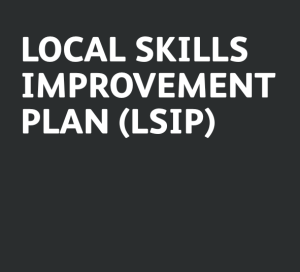As usual we listened to and began to analyse the 2024 Budget live, as the Chancellor made her speech. We’ve since been looking at more of the detail, which can include important further information and clarification not set out in the statement made in the Commons, and continue to consider the measures and implications.
While we understand that money has to be found at this challenging time, with a need to invest in public services and address the cost of living challenges which lower and average earners in particular continue to experience, too much of the onus has been placed on businesses.
The increase in Employers’ National Insurance by 1.2 percentage points to 15% from April is a real concern and presents a number of challenges for businesses as well as for individuals. The effects of these are more far reaching than is immediately obvious.
Each employer will need to decide how they deal with that, depending on their own circumstances and affordability constraints. Many are working on tight margins already – and a move on Employers’ NI takes no account of an employers’ ability to pay.
While a rise won’t affect employee’s pay packets directly in the short term, there are indirect and longer term effects:
- Employers will, understandably, take the cost into account when considering any potential future pay awards, and be likely to moderate them downwards (and many will have to).
- This will also be a consideration in any decisions on whether or not to take on additional staff, whether to replace leavers, and indeed whether to let others go. It will also affect decisions on hours and over time.
- Employers may well be forced to put up prices, which while it doesn’t affect pay packets directly, does affect how far those packets will stretch.
- As well as the direct effect of price rises, such rises impact on inflation, which then feeds through to decisions on interest rates, again affecting the real value of pay.
As it that weren’t enough, additional costs to employers will also impact on investment decisions, and so on future growth, productivity and profitability – which affects both the taxes they pay to support public services and the money they have available to pay staff.
There’s an added challenged in reduction of the threshold at which Employers’ NI kicks in from £9,100 to £5,000.
However the Chancellor has taken some steps to reduce the impact by increasing the employment allowance from £5,000 to £10,500. Apparently 865,000 businesses won’t pay Employers’ NI and more than 1m will pay the same or less than now. But the effect will still be significant.
The impacts highlighted above are exacerbated by the changes from April to the National Minimum Wage. The standard rate will rise by 6.7% to £12.21/hour from April 2025, with an even larger increase for 10-20 year olds of 16.3% to £10/hour as part of phased harmonisation. Alongside the other increases, the wage for apprentices will be increase by 18% from £6.40/hr to £7.50/hr.
It was positive to hear of planned investment in Cumbria, with support for a green hydrogen project in Barrow and mention of investment in infrastructure in the county. And it does appear that other areas will benefit significantly more.
In terms of alcohol duty, the 1p reduction in price of a pint will be welcomed by the hospitality sector but this should be more than counteracted by other increases and in particular the effects of the National Minimum Wage and Employers’ NI.
We welcome the announcements of investment in schools and further education, including to SEN students, which are important to businesses for future workforce.
We also welcome reform of the Apprenticeship Levy, which Chambers have been lobbying for, starting with £40m of investment into shorter and foundation apprenticeships in key sectors. This should give greater agility and flexibility in the system, providing it does deliver the curriculum, timing and structure that employers are seeking.
There are also positive measures around economic inactivity, something which presents a particular issue for us here in Cumbria given our limited and declining workforce, and something Chambers have been pushing. Measures include:
- £240m to trials ways to get people back into work, tackle ill-health related inactivity and support young people not in education, employment or training (NEETS).
- 8 trailblazers bringing together health, employment and skills to support people not in work owing to ill-health.
- 8 Youth Guarantee Trailblazers, testing ways of supporting young people into employment and training by bringing together and enhancing existing services.
- £115m in 2025/26 to deliver Connect to Work, a new supported employment programme, tailored to local needs, matching people with disabilities and health conditions into vacancies and supporting them to succeed in their roles.
- Reforms to the health and disability benefits system early in 2025 to support people who can work to get into or remain in work.
- NHS England Health and Growth Accelerators in at least 3 Integrated Care Systems to develop evidence on the impact of targeted actions on the top health conditions driving economic inactivity.
The planned investment in sectors such as life sciences and automotive is positive but this excludes many, and we remain concern as to how they’re to be supported.
The promised clarity on the way forward with Corporation Tax, as called for by British Chambers of Commerce and others, is welcome, although not any tax increases that may be included within that. And we do welcome the initial extension of measures such as full expensing.
The protections for agriculture and business property in the Capital Gains Tax announcements, which should, for example, protect many farmers, are initially welcome and we need now to consider this in more detail. Similarly we were relieved to see maintenance of the lifetime limit for business asset disposal relief.
On business rates, we’re looking carefully at the apparent protections for retail, hospitality and leisure to support our high streets from 2026/27 and welcome the removal of the cliff edge of the removal of the current 75% discount to business rates, due to expire in April 2025. This will be replaced by a discount of 40% up to a maximum discount of £110k. However this still means that many businesses will see their business rates nearly double (rather than quadruple).
There is good news in the longer term for retail, hospitality and leisure businesses in the lower permanent multiplies being introduced from 2026/27 following a freeze next year. But it’s bad news for larger businesses and those in other sectors with the introduction of a higher multiplier for properties with a rateable value above £500k.
In a policy win for Chambers, the administration of R& D Tax Credits is being enhanced with establishment of a R&D Expert Advisory Panel aiming to improve signposting and guidance on reliefs, and launching an R&D disclosure facility.
On business support, the government will bring forward a Small Business Strategy in 2025, and we look forward to working with them on this. Funding for Made Smarter is being doubled to £16m in 2025/26, supporting more small manufacturing businesses to adopt digital technologies.
In terms of digital development, extension of the SME Digital Adoption Taskforce with an interim report in early 2025 is welcome, and something Chambers have been pushing for. It’s also positive that the Department for Business and Trade is to announce details of a £4m pilot package to encourage tech adoption in SMEs, alongside the extension of Made Smarter highlighted above.
In another win for Chambers it’s good to see £46m of additional funding to support recruitment and training of 300 graduates and apprentices into local planning authorities, accelerate large sites stuck in the system and boost and upskill capacity in local planning authorities.
Continuation of the freeze on fuel duty is always good news, particularly in a rural county such as Cumbria.
For businesses with or looking to extend electric fleets, there’s good news in maintenance of measures such as the Company Car Tax incentives around electric cars and extending 100% first year allowances on electric cars and installation of charge points for a further year.
The government is to work with the new National Energy System Operator and Ofgem to develop a robust grid connection process to ensure viable projects are connected in a timely manner.






